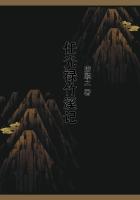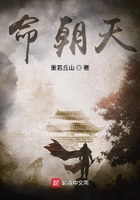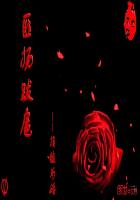THE FINDING OF NADA
Umslopogaas marshalled his companies.
"There is little light left," he said, "but it must serve us to start these conies from their burrows. Come, my brother Galazi, you know where the conies hide, take my place and lead us."So Galazi led the impi. Turning a corner of the glen, he came with them to a large open space that had a fountain in its midst, and this place was full of thousands of cattle. Then he turned again to the left, and brought them to the inner side of the mountain, where the cliff hung over, and here was the mouth of a great cave. Now the cave was dark, but by its door was stacked a pile of resinous wood to serve as torches.
"Here is that which will give us light," said Galazi, and one man of every two took a torch and lit it at a fire that burned near the mouth of the cave. Then they rushed in, waving the flaring torches and with assegais aloft. Here for the last time the Halakazi stood against them, and the torches floated up and down upon the wave of war. But they did not stand for very long, for all the heart was out of them.
Wow! yes, many were killed--I do not know how many. I know this only, that the Halakazi are no more a tribe since Umslopogaas, who is named Bulalio, stamped them with his feet--they are nothing but a name now.
The People of the Axe drove them out into the open and finished the fight by starlight among the cattle.
In one corner of the cave Umslopogaas saw a knot of men clustering round something as though to guard it. He rushed at the men, and with him went Galazi and others. But when Umslopogaas was through, by the light of his torch he perceived a tall and slender man, who leaned against the wall of the cave and held a shield before his face.
"You are a coward!" he cried, and smote with Groan-Maker. The great axe pierced the hide, but, missing the head behind, rang loudly against the rock, and as it struck a sweet voice said:--"Ah! soldier, do not kill me! Why are you angry with me?"Now the shield had come away from its holder's hands upon the blade of the axe, and there was something in the notes of the voice that caused Umslopogaas to smite no more: it was as though a memory of childhood had come to him in a dream. His torch was burning low, but he thrust it forward to look at him who crouched against the rock. The dress was the dress of a man, but this was no man's form--nay, rather that of a lovely woman, well-nigh white in colour. She dropped her hands from before her face, and now he could see her well. He saw eyes that shone like stars, hair that curled and fell upon the shoulders, and such beauty as was not known among our people. And as the voice had spoken to him of something that was lost, so did the eyes seem to shine across the blackness of many years, and the beauty to bring back he knew not what.
He looked at the girl in all her loveliness, and she looked at him in his fierceness and his might, red with war and wounds. They both looked long, while the torchlight flared on them, on the walls of the cave, and the broad blade of Groan-Maker, and from around rose the sounds of the fray.
"How are you named, who are so fair to see?" he asked at length.
"I am named the Lily now: once I had another name. Nada, daughter of Mopo, I was once; but name and all else are dead, and I go to join them. Kill me and make an end. I will shut my eyes, that I may not see the great axe flash."Now Umslopogaas gazed upon her again, and Groan-Maker fell from his hand.
"Look on me, Nada, daughter of Mopo," he said in a low voice; "look at me and say who am I."She looked once more and yet again. Now her face was thrust forward as one who gazes over the edge of the world; it grew fixed and strange.
"By my heart," she said, "by my heart, you are Umslopogaas, my brother who is dead, and whom dead as living I have loved ever and alone."Then the torch flared out, but Umslopogaas took hold of her in the darkness and pressed her to him and kissed her, the sister whom he found after many years, and she kissed him.
"You kiss me now," she said, "yet not long ago that great axe shore my locks, missing me but by a finger's-breadth--and still the sound of fighting rings in my ears! Ah! a boon of you, my brother--a boon: let there be no more death since we are met once more. The people of the Halakazi are conquered, and it is their just doom, for thus, in this same way, they killed those with whom I lived before. Yet they have treated me well, not forcing me into wedlock, and protecting me from Dingaan; so spare them, my brother, if you may."Then Umslopogaas lifted up his voice, commanding that the killing should cease, and sent messengers running swiftly with these words:
"This is the command of Bulalio: that he should lifts hand against one more of the people of the Halakazi shall be killed himself"; and the soldiers obeyed him, though the order came somewhat late, and no more of the Halakazi were brought to doom. They were suffered to escape, except those of the women and children who were kept to be led away as captives. And they ran far that night. Nor did they come together again to be a people, for they feared Galazi the Wolf, who would be chief over them, but they were scattered wide in the world, to sojourn among strangers.
Now when the soldiers had eaten abundantly of the store of the Halakazi, and guards had been sent to ward the cattle and watch against surprise, Umslopogaas spoke long with Nada the Lily, taking her apart, and he told her all his story. She told him also the tale which you know, my father, of how she had lived with the little people that were subject to the Halakazi, she and her mother Macropha, and how the fame of her beauty had spread about the land. Then she told him how the Halakazi had claimed her, and of how, in the end, they had taken her by force of arms, killing the people of that kraal, and among them her own mother. Thereafter, she had dwelt among the Halakazi, who named her anew, calling her the Lily, and they had treated her kindly, giving her reverence because of her sweetness and beauty, and not forcing her into marriage.














